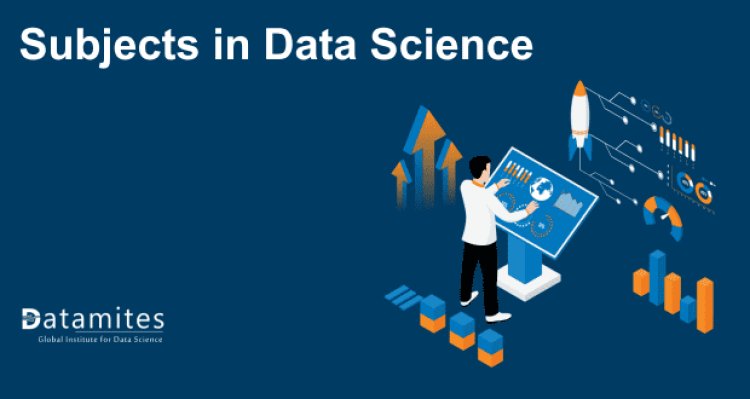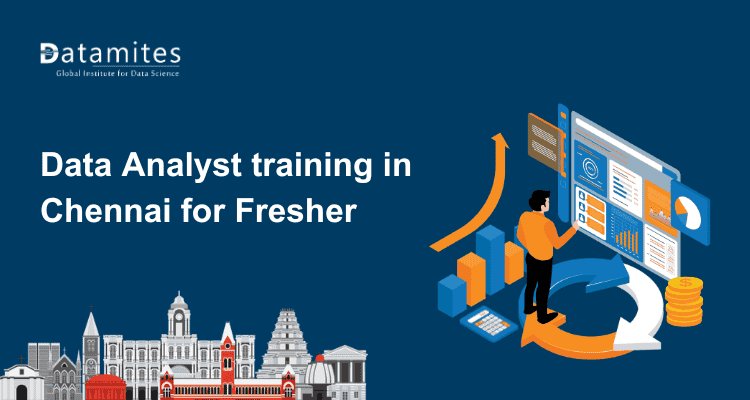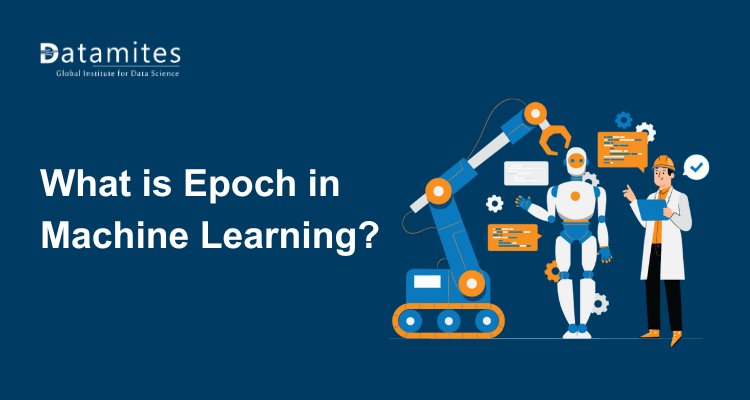Subjects in Data Science

Data science has rapidly become one of the most in-demand fields today, combining multiple disciplines to uncover meaningful insights from data. As the need for data-driven decision-making rises, mastering the subjects within data science is more crucial than ever. The U.S. Bureau of Labor Statistics projects a 31% growth in data scientist employment from 2019 to 2029, significantly outpacing the average growth rate for all occupations.
This blog post will explore the essential subjects within data science, from the foundational mathematics to the advanced techniques of machine learning and data mining.
Importance of Data Science
Data science is reshaping industries by empowering organizations to unlock the potential of data. Businesses leverage the power of data science to predict changes, streamline operations, and enhance customer engagements. For instance, e-commerce enterprises employ data science to suggest products, while healthcare providers utilize it to forecast patient prognosis.
Here are the key points highlighting the importance of data science:
- Informed Decision-Making: Provides insights from data to guide strategic planning and operational decisions.
- Competitive Advantage: Analyzes market trends and consumer behavior to develop strategies that outperform competitors.
- Efficiency and Automation: Automates repetitive tasks, increasing efficiency and reducing errors.
- Personalized Experiences: Tailors user experiences in industries like e-commerce and healthcare, enhancing customer satisfaction.
- Predictive Analytics: Forecasts future trends and outcomes, aiding decision-making in finance, healthcare, and supply chain management.
- Problem Solving: Addresses complex problems, such as optimizing healthcare treatment plans and improving patient outcomes.
- Innovation and Research: Drives scientific discoveries and technological advancements by analyzing vast amounts of data.
- Improving Public Services: Enhances urban planning, transportation, and crime prevention through data-driven approaches.
- Risk Management: Identifies and mitigates risks, such as fraud detection in finance and equipment failure prediction.
- Understanding Social Trends: Analyzes social dynamics to inform public policy and marketing strategies.
Refer these articles:
Data Science Prerequisites
Before diving into the subjects, it's essential to understand the prerequisites for a data science journey. A strong foundation in certain areas can significantly ease the learning process.
- Programming Skills: Mastery of programming languages such as Python and R is crucial. You should be comfortable with data structures, algorithms, and solving problems programmatically.
- Statistics and Probability: A solid foundation in statistics and probability theory helps in understanding data distributions, making inferences, and validating results.
- Mathematics: Knowledge of linear algebra (matrices, vectors), calculus (differentiation, integration), and optimization techniques is crucial for machine learning algorithms.
- Data Manipulation and Analysis: Familiarity with tools and libraries for data manipulation (e.g., Pandas, SQL) and analysis (e.g., NumPy, SciPy) is necessary for working with datasets.
- Data Visualization: Ability to create clear and effective visualizations (e.g., using Matplotlib, Seaborn) to communicate insights from data.
- Domain Knowledge: Depending on the industry, having domain-specific knowledge can be advantageous in interpreting results and designing relevant solutions.
- Big Data Technologies: Awareness of big data frameworks (e.g., Hadoop, Spark) and cloud platforms (e.g., AWS, Azure) for handling large-scale datasets is beneficial.
- Communication Skills: Data scientists often need to communicate findings to stakeholders effectively, so strong verbal and written communication skills are valuable.
Moreover, curiosity and a problem-solving mindset are invaluable traits for any aspiring data scientist.
What Does a Data Scientist Do?
Data scientists play a pivotal role in transforming data into meaningful insights. Their responsibilities span a wide range of activities, from data collection to model deployment.
Data Scientist Key Responsibilities
- Data Collection and Cleaning: Collecting data from multiple sources and verifying its integrity.
- Analysis and Modeling: Employing statistical techniques and machine learning algorithms to reveal underlying patterns and trends.
- Communication: Translating complex findings into actionable recommendations for stakeholders.
Data Scientist Daily Tasks
- Exploratory Data Analysis (EDA): Understanding data distributions and relationships.
- Model Development: Developing models that anticipate future results.
- Visualization: Presenting data through visual means like charts and graphs to facilitate understanding.
Data science demands not only technical prowess but also the ability to eloquently convey insights to diverse stakeholders, underscoring its multidisciplinary essence.
Read these articles:
- Exploring Core Data Science Concepts
- Data Scientist Required Skills
- A Comprehensive Guide on the Data Science Lifecycle
Subjects in Data Science
Grasping the fundamental disciplines of data science is crucial for anyone aiming to succeed in this domain. These subjects form the backbone of any comprehensive data science course training or data science training program.
Mathematics and Statistics
Mathematics and statistics are the cornerstones of data science. They provide the tools needed to analyze data and make informed decisions.
- Linear Algebra: Used in various algorithms, especially in machine learning.
- Probability and Statistics: Helps in understanding data distributions and inferencing.
- Calculus: Essential for optimization techniques used in training models.
A solid grasp of these areas enables data scientists to develop robust models and interpret their results accurately.
Programming and Tools
Data scientists must possess a strong command of programming languages and tools. These abilities enable effective manipulation and analysis of data.
- Python and R: Widely used languages in data science for their simplicity and extensive libraries.
- SQL: Essential for database management and querying data.
- Tools and Frameworks: Including tools like Jupyter notebooks, TensorFlow, and Scikit-learn.
Mastering these tools is crucial for implementing data science workflows and automating tasks.
Machine Learning
Machine learning is a key component of data science, enabling computers to learn from data and make predictions.
- Supervised Learning: Incorporates educating models using annotated data.
- Unsupervised Learning: This involves identifying regularities within unstructured data.
- Reinforcement Learning: Emphasizes guiding agents via incentives and consequences.
Understanding different machine learning algorithms and their applications is fundamental for solving various data science problems.
Data Handling and Preprocessing
The steps of managing and preparing data are essential components in the data science workflow. They ensure that data is clean and ready for analysis.
- Data Cleaning: This involves eliminating duplicates, addressing any missing data, and rectifying inaccuracies.
- Data Transformation: Includes scaling, normalization, and encoding categorical variables.
- Feature Engineering: Enhancing model performance by deriving novel features from current data.
These steps are vital for preparing data and improving the accuracy of machine learning models.
Data Mining and Warehousing
Data mining and warehousing involve extracting valuable information from large datasets and storing it efficiently.
- Data Mining Techniques: Sure, consider techniques like clustering, classification, and association rule mining.
- Data Warehousing: Involves the design and implementation of data storage solutions.
These subjects are essential for managing and analyzing vast amounts of data effectively.
Business Intelligence and Data Analysis
Business intelligence (BI) and data analysis aim to transform raw data into valuable insights that empower strategic business choices.
- BI Tools: Tools like Tableau, Power BI, and QlikView are widely used for visualizing data.
- Data Analysis Techniques: Encompasses the realms of descriptive, diagnostic, predictive, and prescriptive analysis.
Mastering business intelligence and data analysis empowers data scientists to effectively convey insights and drive informed strategic decisions.
Ethics and Privacy in Data Science
Maintaining the ethical integrity of data science and safeguarding user privacy are becoming ever more crucial.
- Data Privacy Laws: Examples like GDPR and CCPA come to mind.
- Ethical Considerations: Includes bias in algorithms and transparency in data usage.
Understanding these aspects is crucial for responsible data science practices and maintaining public trust.
Read these articles:
- Data Science Course Fee in India
- Data Science Course Fee in Chennai
- Data Science Course Fee in Hyderabad
Popular Data Science Tools and Technologies
The data science community embraces a diverse array of tools and technologies, each meticulously crafted to fulfill distinct roles within the data analysis and modeling processes.
Essential Tools
- TensorFlow: Open-source library for machine learning.
- Tableau: A tool designed for crafting dynamic dashboards through visualizing data interactively.
- Apache Spark: Framework for big data processing.
Emerging Technologies
- AutoML: Automated machine learning tools.
- AI Ethics Tools: Tools for ensuring ethical Artificial Intelligence use.
- Cloud Platforms: Harnessing the capabilities of AWS, Google Cloud, and Azure to create adaptable data solutions at scale.
Familiarity with these tools enhances a data scientist's ability to handle diverse data science tasks efficiently.
Read this article: What is Certified Data Scientist Course?
Top Data Science Books
Reading top data science books can provide deeper insights and broaden your understanding of the field.
"Python for Data Analysis" by Wes McKinney: A thorough manual on harnessing Python for data analysis.
"The Elements of Statistical Learning" by Hastie, Tibshirani, and Friedman: Key literature for comprehending machine learning algorithms.
"Deep Learning" by Ian Goodfellow, Yoshua Bengio, and Aaron Courville: A fundamental pillar cherished by enthusiasts of deep learning.
These books offer valuable knowledge for both beginners and experienced data scientists.
Embarking on a journey through the subjects of data science equips you with the skills and knowledge to thrive in this dynamic field. Whether you're pursuing a data science course or data science certification course, mastering these subjects will prepare you for the challenges and opportunities that lie ahead.
DataMites® Institute offers a Certified Data Scientist training program, a comprehensive, job-oriented course in Data Science and Machine Learning. The curriculum includes Data Science Foundation, Python Foundation, Statistics Essentials, Machine Learning Associate, Machine Learning Expert, Advanced Data Science, and database training in SQL and MongoDB. It also covers Version Control with Git, Big Data Foundation, and Certified Business Intelligence (BI) Analyst. The program comprises 700 learning hours spread over eight months, providing in-depth knowledge and hands-on experience in these critical areas.
DataMites® is known for its industry-recognized certifications from the International Association of Business Analytics Certification (IABAC) and NASSCOM FutureSkills, which add significant value to the training.





